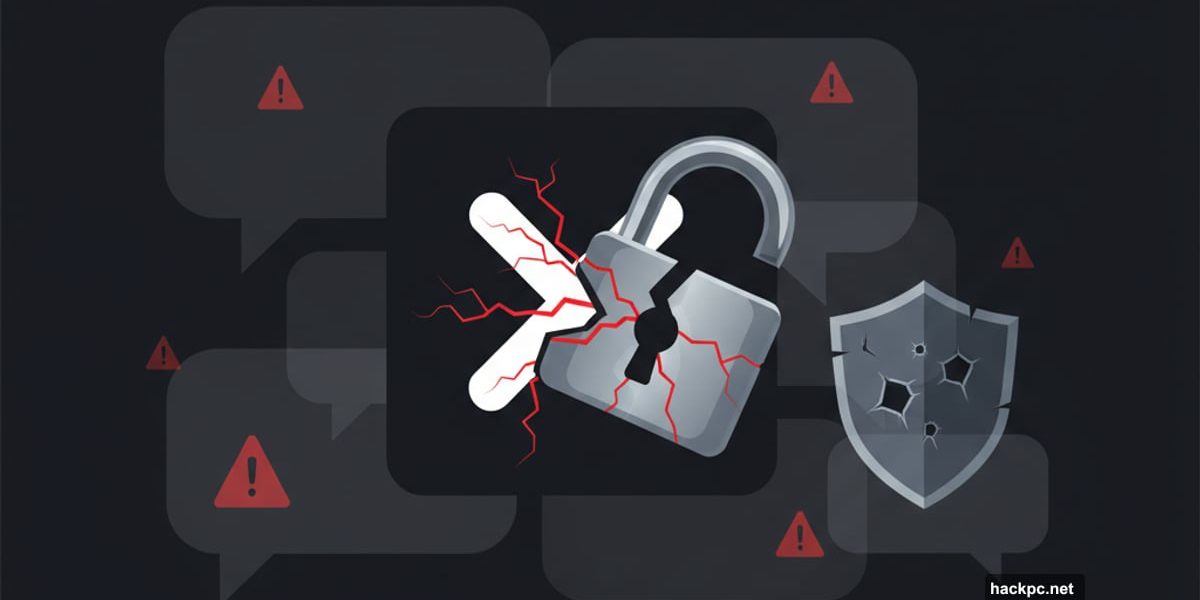
X just replaced its basic direct messaging with something that looks more like a real chat app. But the encryption comes with some serious warnings buried in the fine print.
The platform rolled out Chat today. It adds voice calls, video calls, file sharing, and message editing. Plus, it finally includes end-to-end encryption for all chats, including groups and media files.
Sounds great on paper. But X itself admits the encryption has gaps that could let insiders or hackers read your messages without you knowing.
What Actually Changed
Chat replaces X’s old DM system completely. The upgrade brings features you’d expect from any modern messaging app in 2025.
Now you can edit or delete sent messages. Share files directly in conversations. Make voice or video calls without leaving the app. And all of it happens with encryption turned on by default.
The service launches today on iOS and web. Android users get it “soon,” though X didn’t specify when. Voice memos are also coming later as another way to exchange audio messages.
This isn’t X’s first attempt at encrypted messaging. The company tested encryption earlier this year but paused it in May to fix unspecified problems. That break lasted months while engineers rebuilt the system.
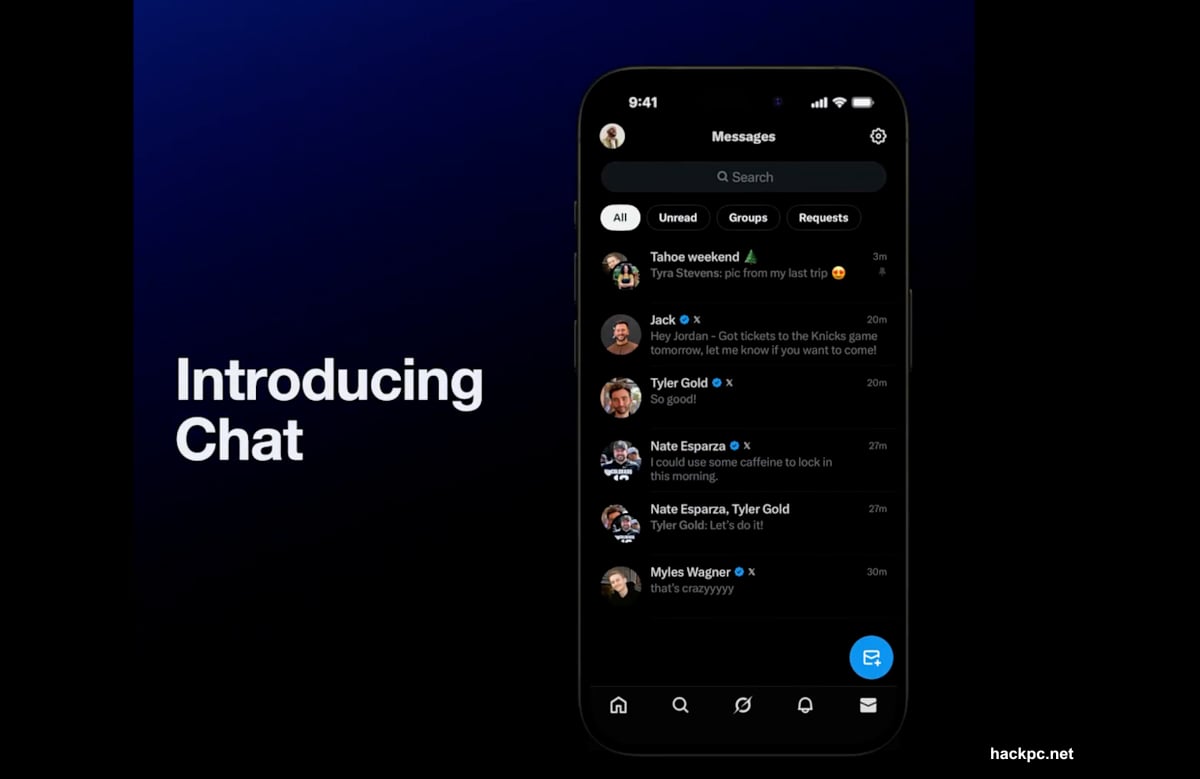
The Encryption Problem Nobody’s Highlighting
Here’s where things get messy. X’s encryption protects message content but leaves major gaps in security.
First, metadata isn’t encrypted. That means information about who you’re messaging, when, and how often stays visible to X and potentially to others. Metadata reveals a lot about your conversations even without reading the actual messages.
Second, and more concerning, X explicitly states it doesn’t protect against man-in-the-middle attacks. These attacks let someone intercept and read messages as they travel between users.
So what does that mean practically? If a malicious insider at X wants to read your chats, they probably can. If law enforcement demands access through legal process, X can likely provide it. And neither you nor your chat partner would ever know someone compromised the conversation.
X admits this plainly in its help documentation. Most messaging apps don’t include warnings like that because their encryption actually prevents these attacks.
Missing Safety Features Other Apps Have
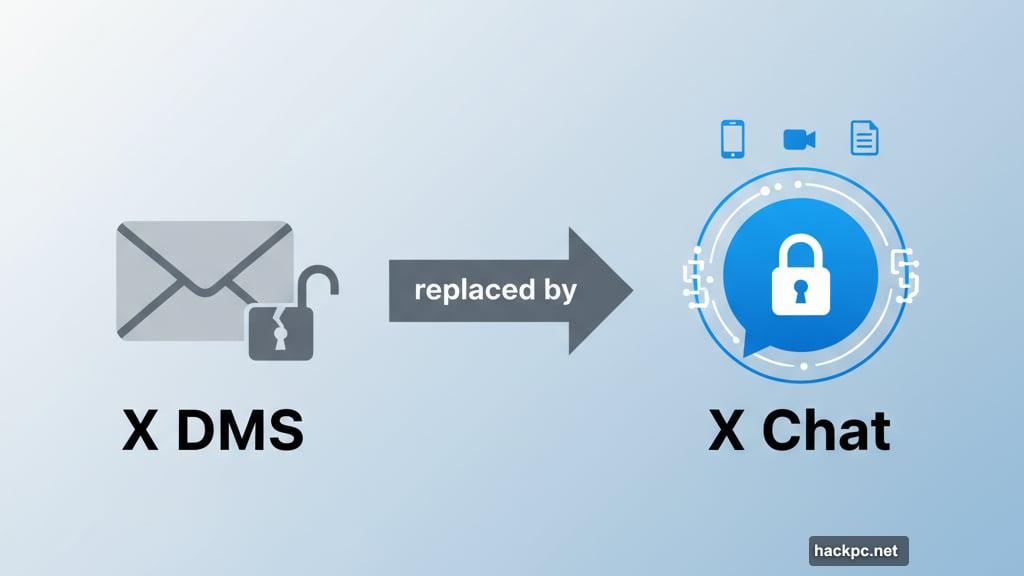
Signal, WhatsApp, and Telegram all let users verify conversation authenticity. You can check that you’re really talking to who you think you’re talking to, not someone impersonating them.
X’s Chat doesn’t have that yet. The company says it’s “working on” verification features but gave no timeline for adding them.
Without verification, you can’t confirm your encrypted chat hasn’t been compromised. That’s a fundamental security feature, not a nice-to-have extra.
Plus, X does offer one privacy feature worth noting. Chat sends notifications when someone screenshots your conversation. That’s helpful for catching when someone saves potentially sensitive messages.
But screenshot alerts only work if the other person uses X’s official apps. Third-party tools or workarounds can bypass these notifications entirely.
Why This Matters Now
X has been promising better messaging for over a year. Elon Musk repeatedly talked about turning X into an “everything app” that handles messaging, payments, and social media in one place.
Chat represents the first major step toward that vision. But it launches with compromises that could undermine trust in the platform.
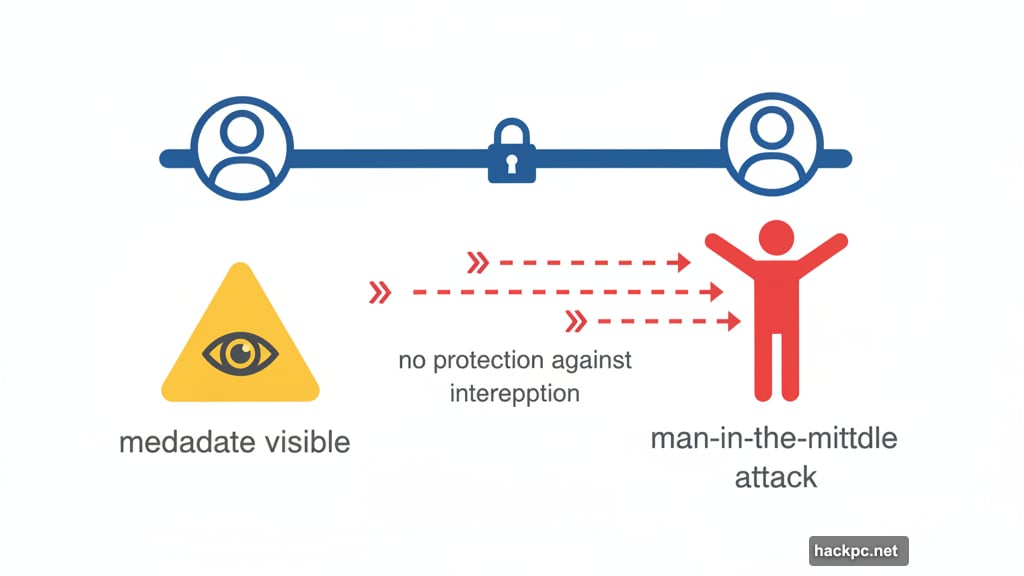
Other messaging apps spent years building robust encryption before rolling out features. X appears to be moving faster, shipping functionality even while acknowledging security gaps.
That approach works if you’re sharing memes or coordinating lunch plans. It’s riskier if you’re discussing anything sensitive, from business deals to personal conversations you’d rather keep private.
Should You Actually Use It
For casual chats? Chat works fine. The interface feels modern, calls seem stable based on early testing, and encryption beats the old completely unencrypted DMs.
For sensitive conversations? Signal or WhatsApp remain better choices. Their encryption blocks the exact attacks X says it can’t prevent.
The middle ground is trickiest. Work discussions, family planning, anything you’d want private but not necessarily secret. Chat’s encryption helps but won’t stop determined adversaries or legal demands.
X’s candid warnings about security limitations are actually refreshing. Most companies bury those details or don’t disclose them at all. But transparency about problems doesn’t fix the problems themselves.
The platform says better security features are coming. Until then, Chat offers convenience and basic privacy, not bulletproof security. Know the difference before trusting it with messages that matter.
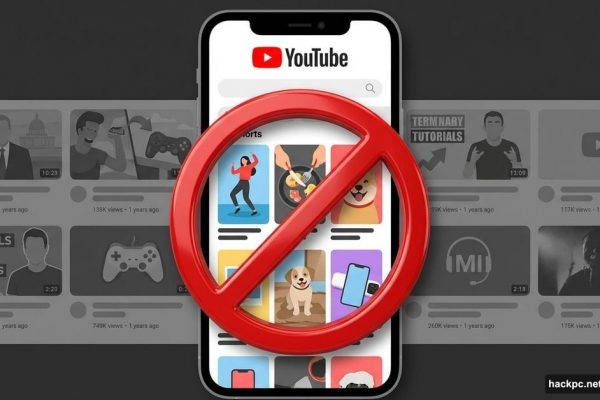


Comments (0)